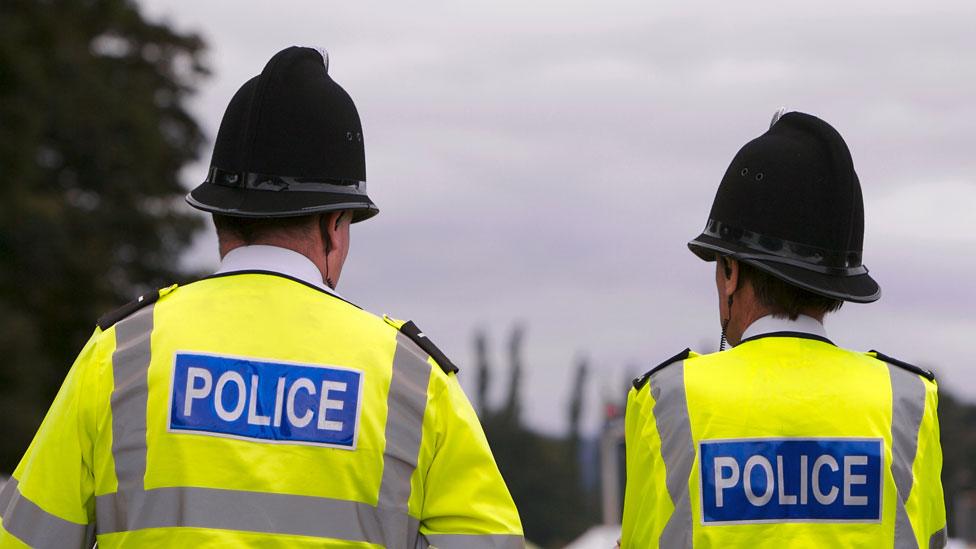Wales' emergency service workers dealing with mental health
- Published
Three emergency service workers open up about their own experiences with mental health
Emergency service workers are the first to respond in people's hour of need, dealing with trauma, violence and fatalities. But what happens when these distressing experiences cause them to seek help themselves?
John Haskell would see a little boy on the backseat of his car or hear him running through his house.
It was these moments that made John realise he needed help - because the five-year-old had died in a car crash months before.
The 49-year-old has been a firefighter with South Wales Fire and Rescue Service for 29 years.
But the first signs he was suffering with his mental health was while helping in the search for missing April Jones in Machynlleth, Powys, in 2012.
"Having children of my own, listening to the police briefs and hearing what she'd gone through, that started to hurt," said John, from Barry, Vale of Glamorgan.
"But the main incident that set me on the road to ruin was a little five-year-old boy involved in a car accident on Western Avenue [Cardiff].
"I'd only dropped my young boy off that morning and then by 11 o'clock I was dealing with this horrific fatality."
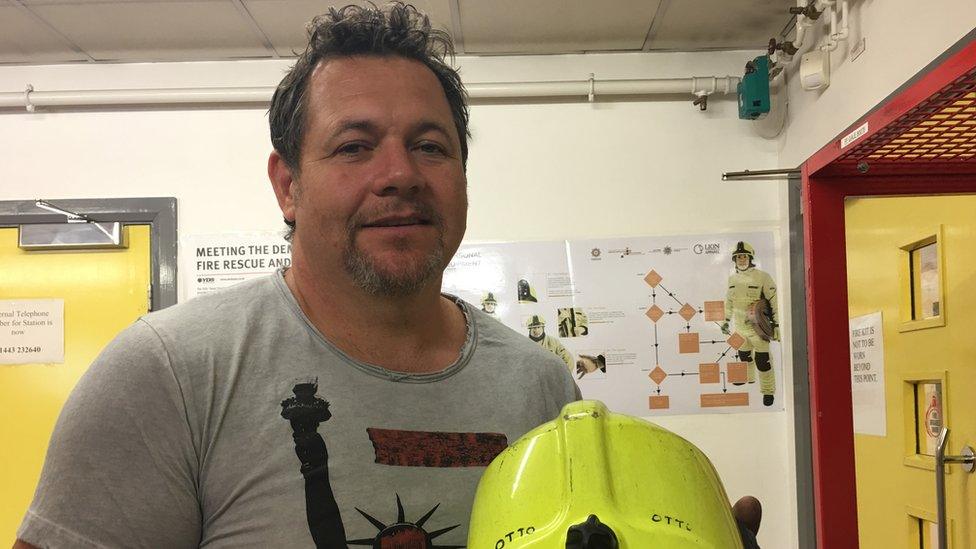
John hopes to kayak the Amazon River in aid of Mind Cymru's Blue Light campaign
The father-of-two said it left him "haunted" and with a "strong presence" of the boy.
"That's when I realised I wasn't right. It didn't go away," he said.
"I was coming home crying and was just telling myself its normal, it's a sad incident, but this was six or seven months later and you think 'perhaps this isn't normal'."
John received help through NHS occupational health and had therapy and counselling. He was later diagnosed with post-traumatic stress disorder.
Road to recovery
"I became totally withdrawn and didn't enjoy doing stuff. It brought on depression, I disappeared off the face of the planet," he said.
"That's why people don't realise you're suffering because they don't see you."
He said the support of the fire service has been "fantastic" and has helped him on the road to recovery.
But his experience has left him unable to return to work.
He is due to retire from Ely fire station, Cardiff, in September.
"I had a good 29 years, I'm proud of that. I haven't got a problem walking out the door a little early," he said.
"I can't believe what dark place I went to, demons and dark, but sat here now 100% happy, it's hard to imagine where I was."
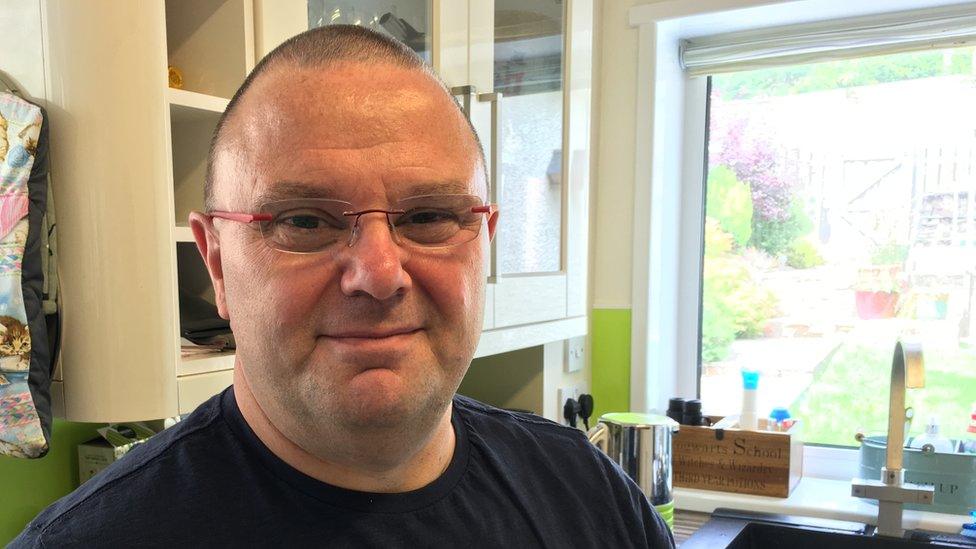
George said 12 hour shifts could often roll into 13 or 14 hours while working as a paramedic
For George Hassell, a rapid response paramedic for the Welsh Ambulance Service, the "constant" pressure of the job became too much.
In 2011, he had a breakdown in work and contemplated ending his life on the drive home.
"There'd be times when I just didn't want to come home, I'd be driving home as slowly as possible because I just didn't feel right but I couldn't put my finger on why," he said.
"The constant amount of calls we were going to… you'd start your shift, go out straight away going from job to job. The types of jobs you're going to as well are very traumatic and nasty calls.
"There was no down time, no time to chat to anyone, no de-brief.
"I thought 'I've had enough, I can't cope with the pressures and the way life is at the moment'. I had a brilliant relationship with [my wife] Lisa but it was just all falling apart because of how I was feeling."
'Down days'
George, from Blackwood, Caerphilly county, did not realise he was suffering from depression until he had counselling, which he was referred to via work.
He feels it is particularly hard for men to seek help because it is not seen as "macho".
But his advice to anyone suffering with their mental health is simple - speak to someone.
"It's the hardest thing you'll do, it really is, but once you accept the help is out there and you access that support, things will improve," he said.
George now works as a solo responder in a more rural area, spending less time in hospitals.
"I still get down days, I still get days when I wake up and don't feel right, but thankfully not as many," he added.
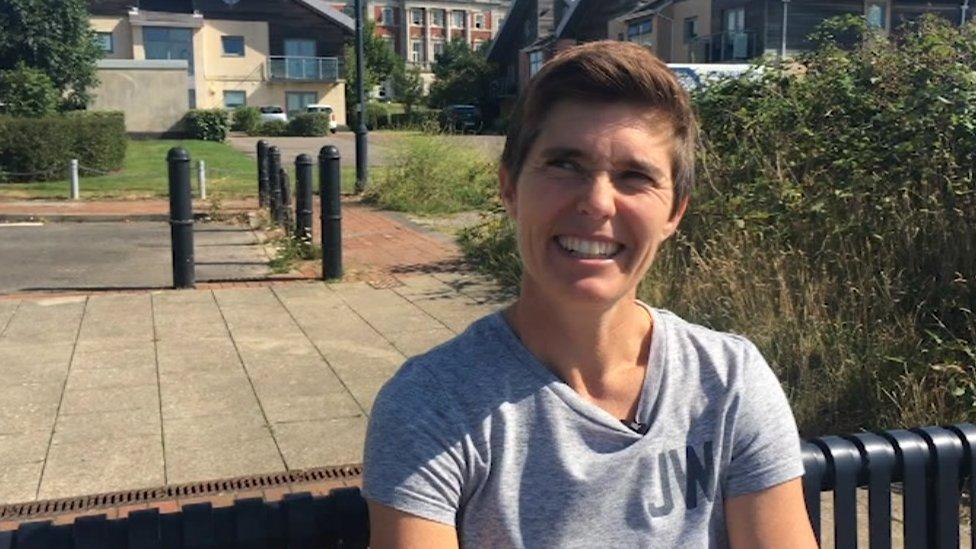
Georgina said her colleagues have been "brilliant" in supporting her
Georgina Lloyd, originally from Tenby in Pembrokeshire, but living in Barry, has served with South Wales Police for more than 14 years.
As a detective sergeant working in public protection, she has dealt with domestic abuse, child abuse, child sexual exploitation and sexual offences.
She said it was a culmination of this intense workload coupled with problems in her personal life - failed IVF treatment and her marriage breaking down - and failing a police inspector board that "triggered something" in 2015.
"I saw myself as a failure and as a result of that I walked out of work one day and thought 'I can't do this anymore'," she said.
"We're supposed to be the ones in front with the uniform on, able to deal with anything and everything we see.
"But take that uniform off and go home to your family, you're just a normal human being who will experience the same thoughts, feelings and pressures as anyone else."
'Be brave'
Georgina said she isolated herself from friends and family, did not eat and exercised excessively "as a means of self harm".
She was signed off work in April 2016 and self-referred herself to counselling. Georgina was diagnosed with a number of mental health problems, including depression, anxiety and adjustment disorder.
It was an attempt to take her own life - she subsequently rang her own police force for help - that led her to tell her family about her mental health issues.
She said: "I have always been a strong, outgoing confident person and at that point I had admitted it to myself but it was the severity of things that was frightening for me."
Her recovery has been helped by writing a blog about her experience, external and by taking part in BBC One's Mind over Marathon documentary.
"Recognise it in yourself and please just talk. Until you start talking you don't know what's going to come out," she said.
"If I hadn't talked I wouldn't have been on Mind Over Marathon, I wouldn't have met the Duke and Duchess of Cambridge, I wouldn't have been on TV with Nick Knowles.
"My life has incredibly turned around in a positive way for opening up and saying 'yeh, I've got mental health and I'm a police officer'.
"Help is out there, you just have to take that step. Be brave."
- Published18 August 2017
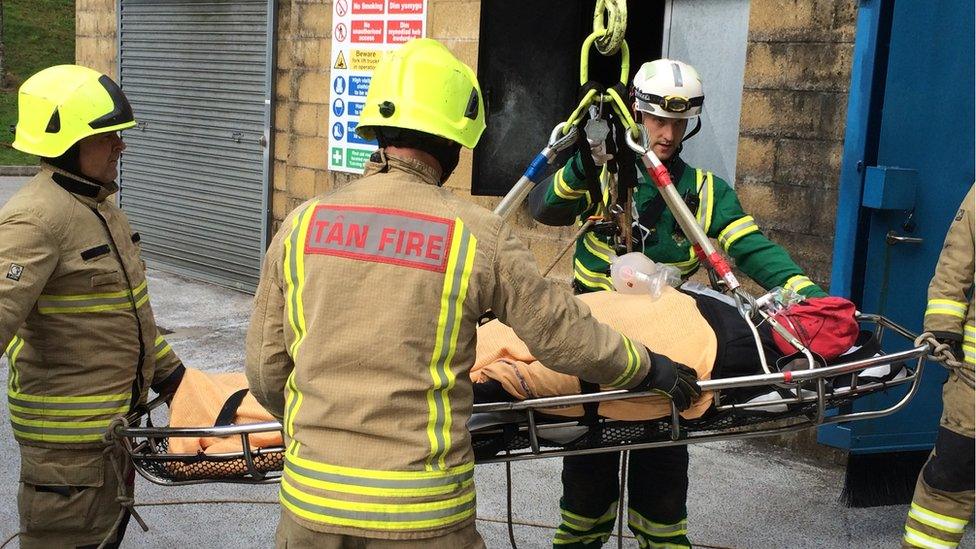
- Published27 April 2017
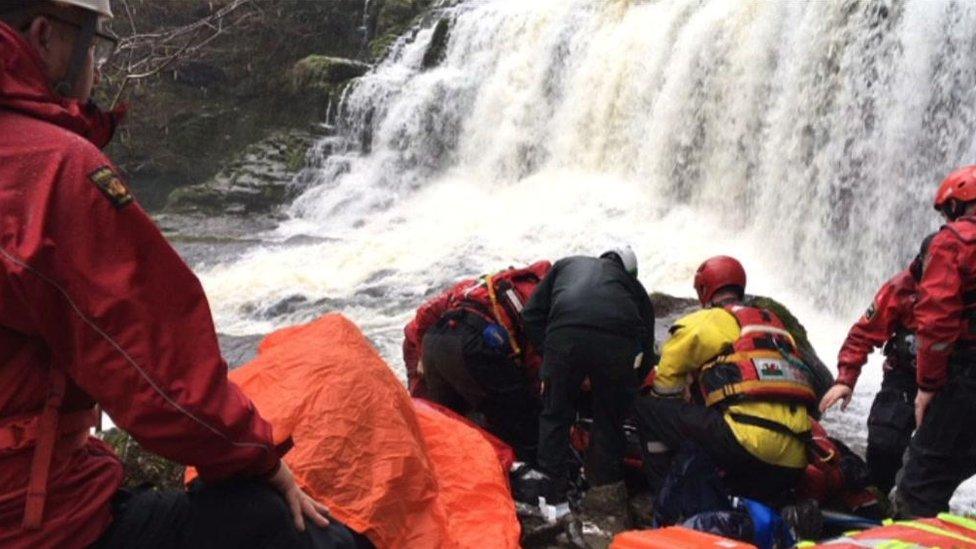
- Published27 April 2017
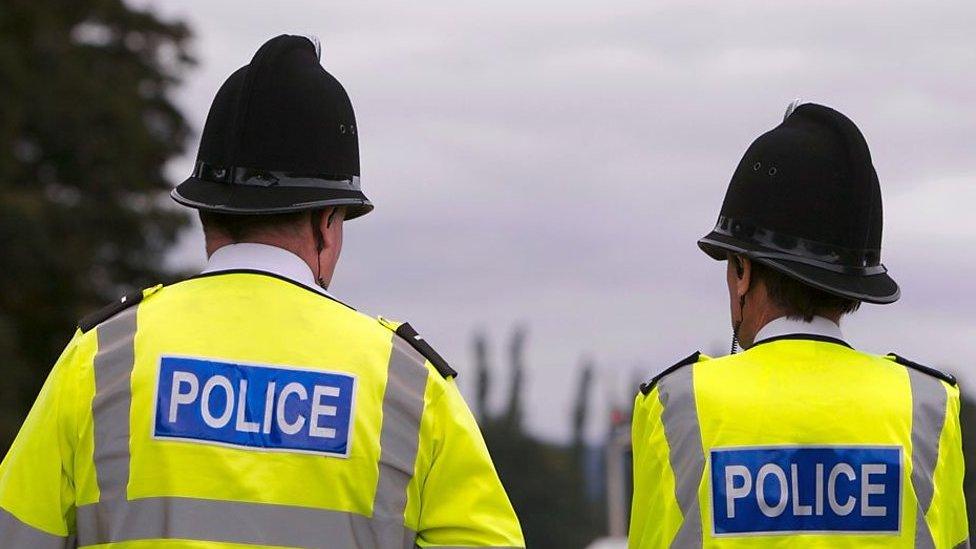
- Published13 April 2017
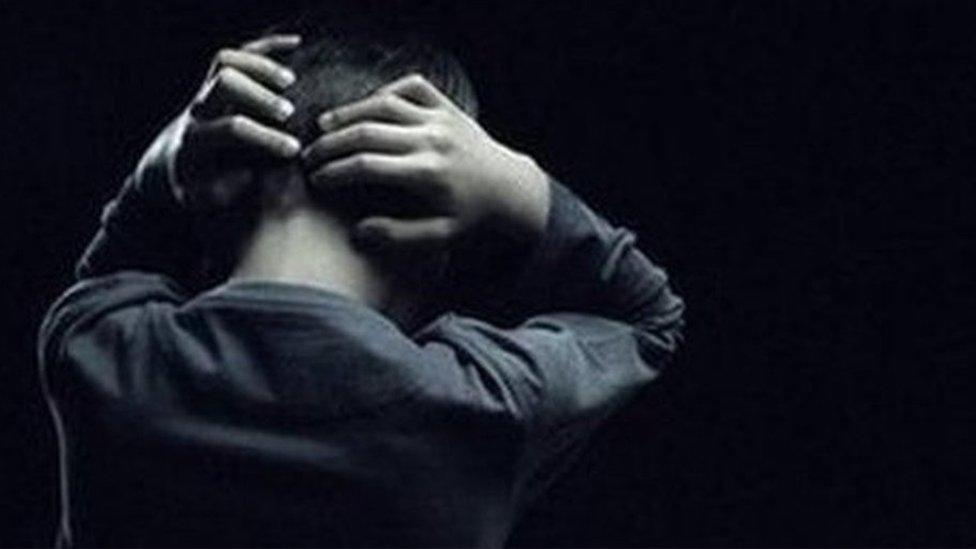
- Published13 April 2017
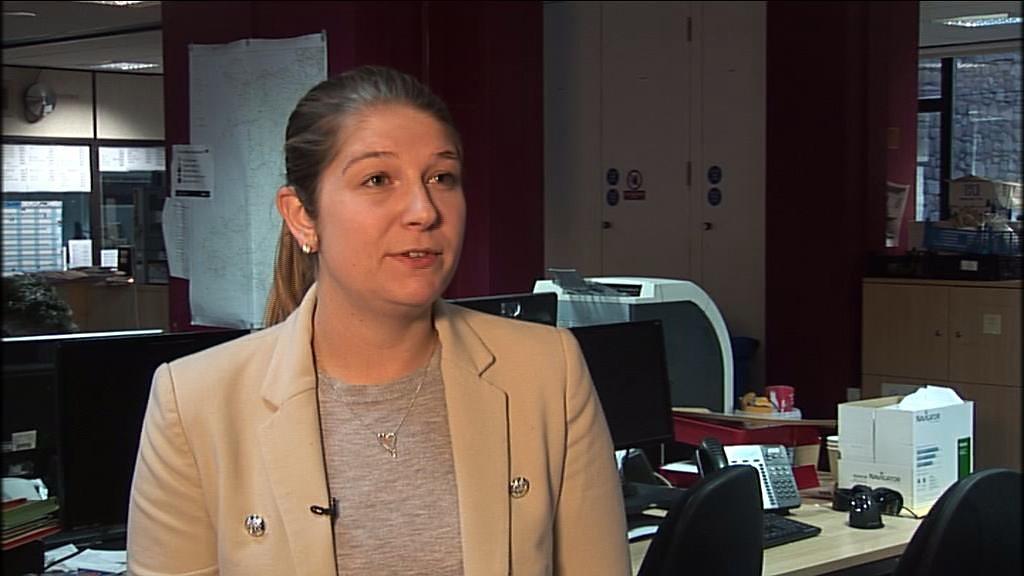
- Published10 April 2017
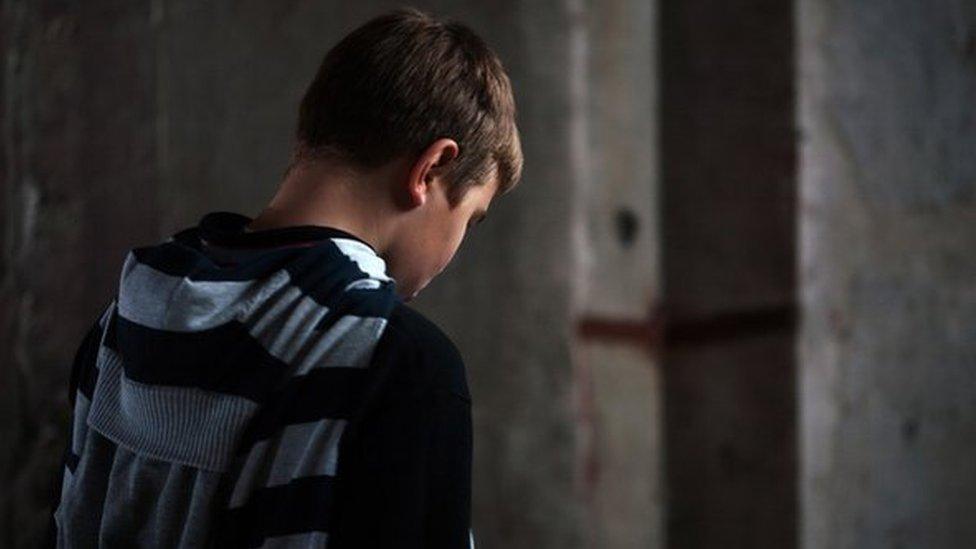
- Published20 April 2017
